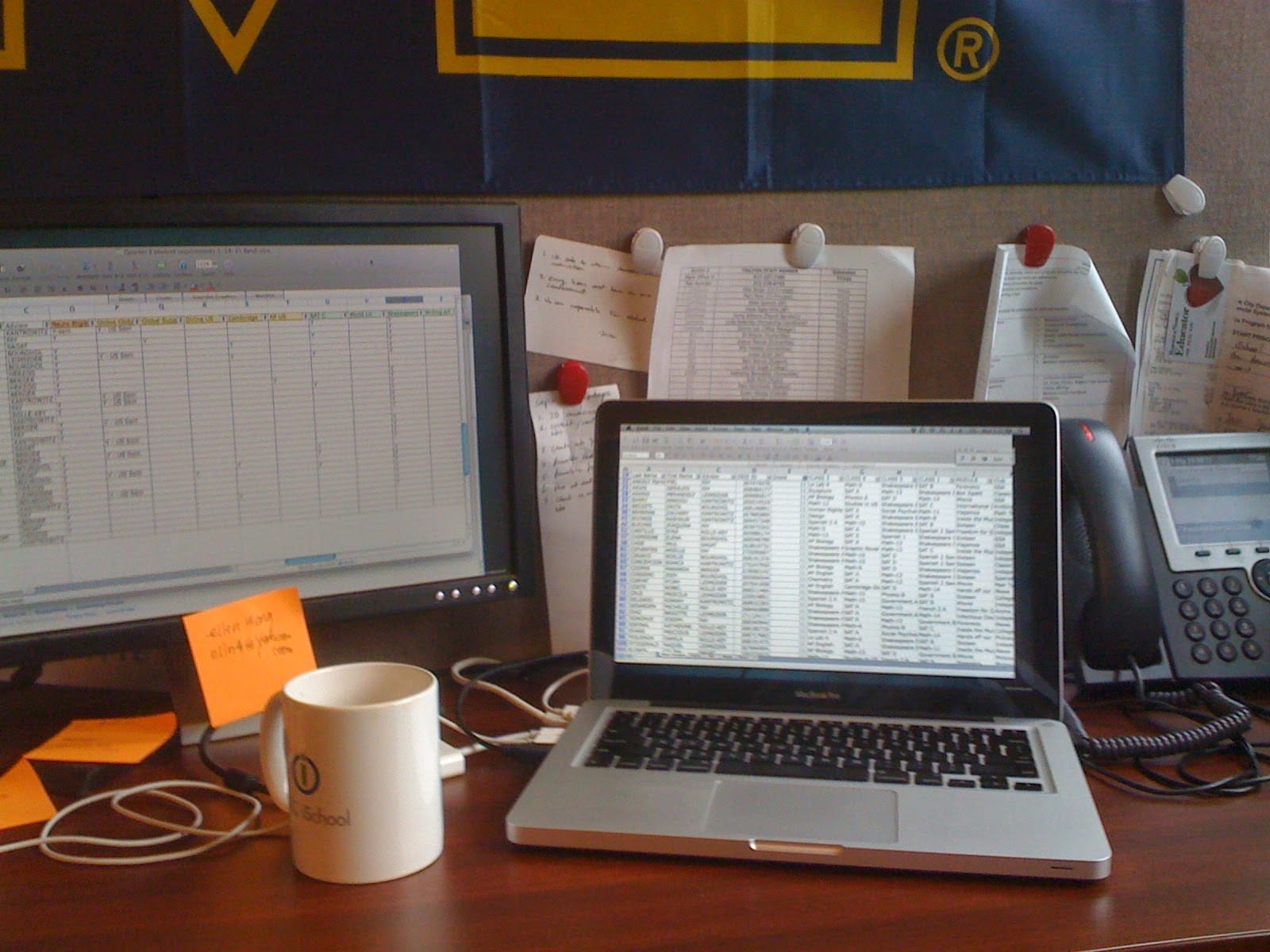Advice to current Turing Students

Occasionally students at Turing will reach out for advice. We have an active Slack community and one such question was so interesting that I thought I'd capture my response as a Very Normal post.
How was your journey after Turing? Did you face challenges finding your first job that led to your mid-level role at Stripe? What steps did you take to keep progressing in your career?
Turing reshaped my life in fundamental ways that I really could not have imagined earlier in my career. To characterize the journey after Turing, let's start with where I came from.
I joined Teach for America in 2005 with the idea that it might improve my chances at getting into a good law school. I ended up falling in love with my education career thanks to a combination of great mentors, great schools, and great organizations. I convinced myself that I was meant to open a school that reimagined education for the twenty-first century.
During this time I ran the first public school classroom in the Bronx to have a one student to one laptop program. I experimented with flipped classroom models. I built self grading assessments that gave students next steps based on what they knew and what they needed to improve.
I joined the NYC iSchool in 2009, the year after its founding by visionaries Mary Moss and Alisa Berger. I was tapped to build custom high school schedules for all our students at a time when systemic differentiation and student choice were virtually unheard of. I struggled with the complexity of the task at first, but looking back now I recognize it as an early lesson in software development. The spreadsheet skills I grew building over 400 completely different class schedules at that time serve me to this day.

While making technology a core part of my approach to instruction and school operations, Web 2.0 was in full bloom. Companies like Google seemed like a nirvana I'd never be able to gain entry into. I collaborated with Googlers Cristin Frodella, Eric Koleda, and Jonathan Rochelle whose expertise and talents reinforced my perception.
After a decade in K12 public education and a set of newborn twins I found myself feeling burnt out. I knew that to continue in education I'd have to grow myself in areas thatI was not interested in developing.
The year was 2015 and the Bootcamp industry was booming. Some research pointed me towards a few possible programs, but in the end speaking to staff and current students made the choice obvious. I enrolled in Turing at the start of 2016 and began the program in June.
Going into Turing I was in bad shape. Twin infants had kicked my ass for six months. I was ineffective and depressed in my job as an Assistant Principal. When I started at Turing my life simplified. Was I learning? If not, get to learning as soon as possible. If yes, continue learning.
It was glorious. Biking from my apartment to the basement on Blake Street rejuvenated me. It felt like a summer camp.
When I finished Turing, my job search became my full time pursuit in December 2017. It was not easy. It felt like it was never going to end. And then in March I got off the phone with Kayla Trimble and it had ended. I was going to be a software engineer making $75k at Ibotta.
We used to say the job search sucks until it doesn't. That might still be true, but certainly today's market the most challenging it has ever been for recent code school grads.
My manager at the time and I used to say that there weren't too many better places to start (or grow as dozens of Turing alumni have gone on to show) a career in software than Ibotta. At the time I started, there were about 30 developers. For a short time in those early days, to my horror, I sat next to the CTO. I'd watch the CEO looking over the shoulders of the mobile team which sat right behind me.
When I left Ibotta four and a half years later there were over 300 developers. I had been promoted first to senior engineer and then to staff engineer. I'd been able to work on projects that grew in complexity and impact. I helped reshape Ibotta's technical interview process. I had enough time to feel the pain of earlier bad decisions coming back to haunt me.
I joined Stripe in October 2021 for a few reasons. First, since Turing I had fallen in love with Ruby. Stripe has one of the largest Ruby codebases in the world and I wanted a chance to learn from the masters. Second, I felt like Ibotta was the proof of concept portion of my software career. I was trying to prove to myself and my family that the big Turing gamble and a career change in my thirties would work. With a proof of concept showing the way, I joined Stripe with the hope of gaining the experience to distinguish myself in a much larger organization.
Onboarding at Stripe was more difficult than I imagined. I had never joined a company as a remote employee and I struggled to learn the new domain, culture, and organizational topography as quickly as I'd have liked. Thanks again to mentors like Diana Fishman and Adam Reeve I made it through my first year.
From there I was able to advance and get promoted. I spoke about it recently at Boulder Ruby and at Turing and wrote about it in the Very Normal Senior engineer series.
Drawing some big picture themes out of this story, I'd point to the fact that at every stage of my career I was able to find mentors that I admired and whose skills I could attempt to replicate in my own career.
Also in the story are examples of sharing my experience and learning with others. From speaking at technical conferences and meetups to consistently maintaining a blog for many years - there is no better way to cement your own learning than teaching it to others.
Less obvious from this post is the idea of reading, which has made me far more successful than I would have been had I spent all that time watching movies, tv or playing video games.
Mentorship and reading are related. Mentorship involves learning from interaction with your mentor. Reading is mentorship you get from strangers. Throughout my career I have taken in lessons from mentorship and output those lessons with my own color. I encourage you to do the same.
Member discussion